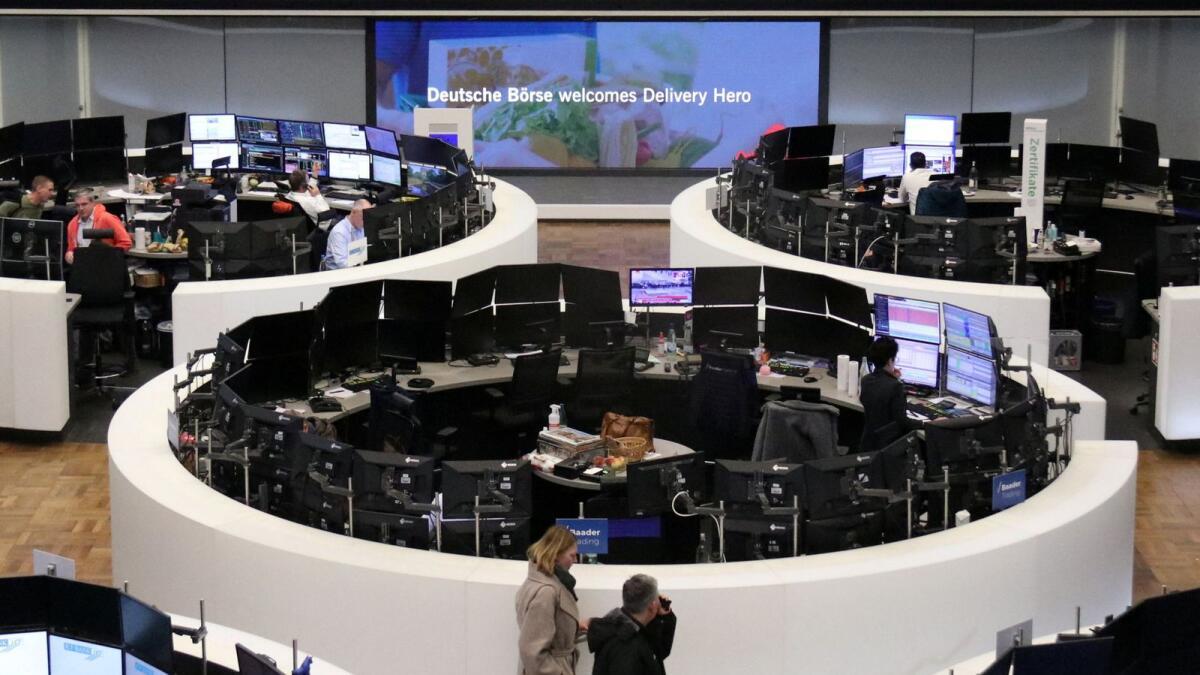
Dollar Drops, European Stocks Jump On Trump Tariff Delay
European equity markets were firmly in positive territory in afternoon trading after the Wall Street Journal reported Trump would not impose import tariffs immediately after he's sworn in later on Monday.
The pan-European STOXX 600 rose 0.3 per cent, with the region's main indices all up roughly 0.5 per cent. MSCI's All-World index was last up 0.4 per cent.
The dollar tumbled by as much as 1.3 per cent at one point, falling particularly hard against the currencies of the United States' largest trading partners, such as the Canadian dollar , the Mexican peso, the euro and China's yuan.
Trump takes the oath of office at noon Eastern Time (1700 GMT), and promised a“brand new day of American strength” at a rally on Sunday.
He has stoked expectations of an immediate slew of executive orders and, in a reminder of his unpredictability, launched a digital token on Friday, which soared above $70 before sliding to around $50 as traders turned uneasy.
Monday is a US holiday, so the first responses to his inauguration in financial markets may be felt in foreign exchange and then during Asian trade on Tuesday.
Euro zone bond yields steadied by 1518 GMT.
“In the last two weeks we have seen two conflicting views from the new administration - the hard-liners on tariffs and those who favour a more market-friendly approach,” Frederik Ducrozet, head of macroeconomic research at Pictet Wealth Management, said.
“So, this perception that the door is open to negotiations is important. But it doesn't tell us where we will end and I will be waiting for details on the scope of tariffs, which sectors will be impacted,” he said, adding:“The fact that he might be choosing a gradual approach is an encouraging sign.”
The dollar fell 1.15 per cent against the Canadian dollar to C$1.4319 and dropped 1.4 per cent against the Mexican peso.
Trump has threatened tariffs of as much as 10 per cent on global imports and 60 per cent on Chinese goods, plus a 25 per cent import surcharge on Canadian and Mexican products, duties that trade experts say would upend trade flows, raise costs and draw retaliation.
The yuan itself strengthened sharply in the offshore market , leaving the dollar down almost 1 per cent on the day at 7.274.
The Australian dollar, which can serve as a more liquid proxy for the Chinese currency, rose 1.2 per cent on the day to $0.6262. The euro, meanwhile rose 1.3 per cent on the day to $1.0401, set for one of its largest one-day rally since late 2023.
Bitcoin hit an all-time high of $109,071.86 in early European trading before falling back to trade around $106,030.10, still a 1.2 per cent gain for the day. The world's largest cryptocurrency has surged more than 10 per cent so far this month.
Trump's new cryptocurrency launched on Friday - known as $TRUMP - soared to nearly $12 billion in market value, drawing billions in trading volume. First Lady Melania Trump's cryptocurrency launched on Sunday hit a market cap of $1.9 billion.
In commodities, gold rose 0.2 per cent to $2,708 an ounce and Brent crude futures fell 1.2 per cent to $79.82, while US crude dropped 1.6 per cent to $76.62, on expectations that Trump may ease curbs on Russia's energy sector in return for a truce in Ukraine.

Legal Disclaimer:
MENAFN provides the
information “as is” without warranty of any kind. We do not accept
any responsibility or liability for the accuracy, content, images,
videos, licenses, completeness, legality, or reliability of the information
contained in this article. If you have any complaints or copyright
issues related to this article, kindly contact the provider above.

















Comments
No comment